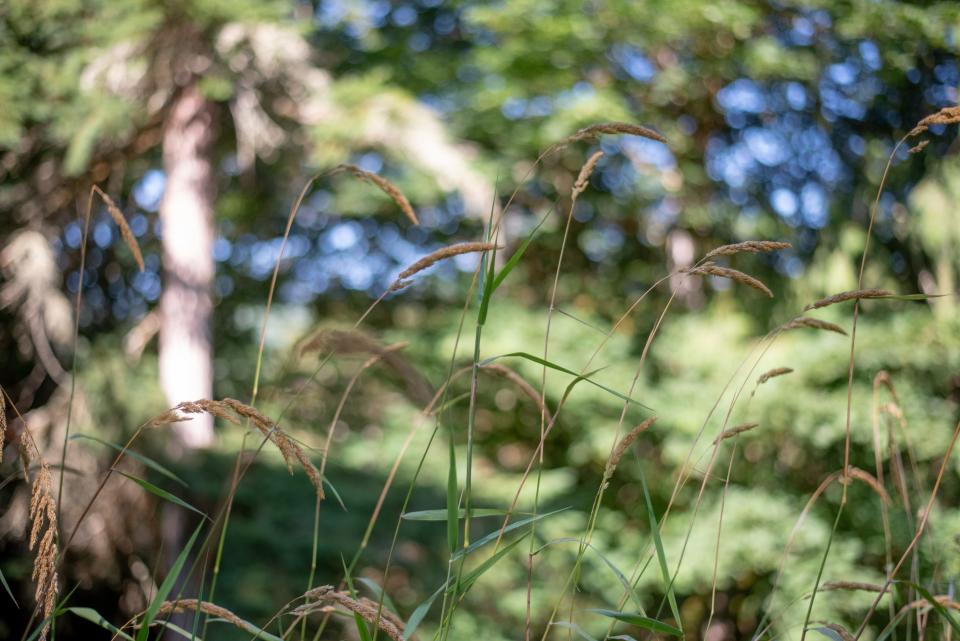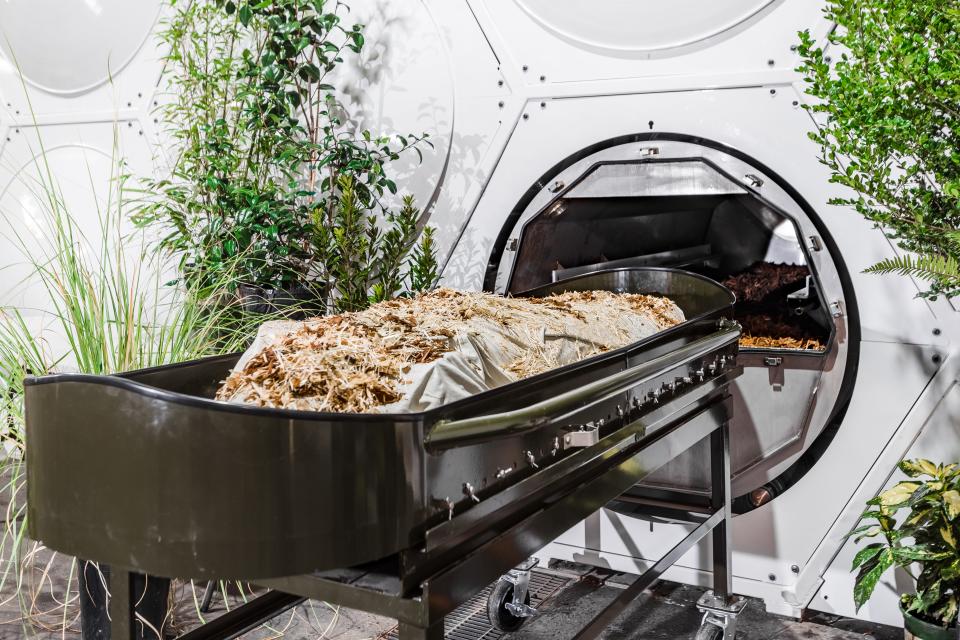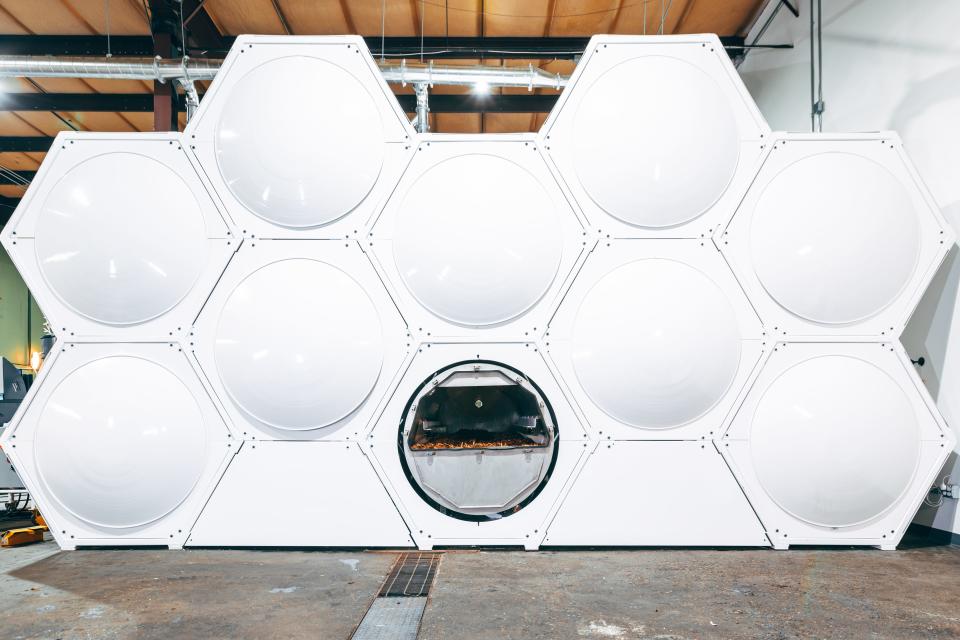Delaware is the 10th state to legalize human composting, an alternative funerary practice
Human composting is officially legal in the First State, making Delaware the 10th state to allow the alternative funerary practice.
Here’s how Delaware legislators made it happen.
What is human composting?

Burial or cremation are the common ways human remains are disposed of. Human composting offers an alternative by allowing the human body to decompose in a “gentle, respectful process that accelerates the decomposition of human remains to soil,” according to a bill summary on the Delaware General Assembly website.
The process uses large vessels to hold human remains together with wood chips, straw or other natural materials for about 30 days, during which the human remains and organic materials are mixed with warm air and periodically turned. This results in the body breaking down until only a soil material remains, which can then be given to the deceased’s family.
According to the bill proposal, natural organic reduction is considered to be more eco-friendly than cremation, as the practice does not use formaldehyde or release carbon dioxide and mercury into the atmosphere and uses one-eighth of the energy of cremation.
HB 162 passed with an amendment stating that there are restrictions on any remains from a person who had or is suspected of having a viral or other health risk that the Delaware Division of Public Health determines may not be eliminated during the human composting process. The bill also states that remains cannot be composted if a person dies due to a radiological incident or if their body contains radioactive implants.
Previous reporting: Delaware legislators overwhelmingly support new human composting bill. What to know
House Bill 162 background

House Bill 162, an effort to allow human composting in the First State, was introduced in 2023 by Rep. Sean Lynn, a Democrat in District 31 in Dover.
HB 162 received near-unanimous approval in the state House when it passed with a vote of 37-2 on Jan. 23. From there, it awaited consideration in the Senate until it was granted a passing vote of 14 to 7 on March 21.
Human composting legalized in Delaware

After nearly two months since a passing vote on the Senate floor, Gov. John Carney signed Delaware’s human composting bill into law on May 16, making the First State the 10th state in the nation to allow the alternative to cremation and burial. It is effective immediately.
Washington was the first state to legalize human composting in 2019, followed by Colorado and Oregon in 2021, Vermont and California in 2022, New York in 2023. Nevada began the practice in January of this year, followed by Arizona legalizing it in March and Maryland legalizing it on May 9, according to Recompose, a Seattle-based human composting facility.
While Delaware is the most recent state to jump on the bandwagon, many other states have introduced similar legislation.
“Death is a natural part of life and, as uncomfortable as the topic may be for some people to discuss, I believe strongly that Delawareans deserve an opportunity to make informed choices about their final days, including what happens to them after they pass,” said Sen. Laura Sturgeon, the prime Senate sponsor of HB 162. “I am proud to have helped usher this bill through the Delaware Senate so our neighbors can have the option of choosing a more environmentally friendly alternative to burial and cremation.”

Bill sponsors worked with the framework provided by the other states allowing human composting to ensure Delaware’s allowance of natural organic reduction would be as safe and successful as possible.
Part of the team guiding Delaware’s plans for human composting was Earth Funeral, a licensed natural organic reduction provider in Washington State.
Following Carney signing the bill into Law, Earth Funeral commended Delaware legislators for taking a step toward a greener, more eco-conscious future.
“Delaware families have spoken: they want a gentle, environmentally friendly alternative to traditional cremation, and it is wonderful to see Delaware leaders honor this important consumer choice,” said Tom Harries, CEO and co-founder of Earth Funeral.
Got a tip or a story idea? Contact Krys'tal Griffin at kgriffin@delawareonline.com.
This article originally appeared on Delaware News Journal: Gov. John Carney signs bill allowing human composting in Delaware

